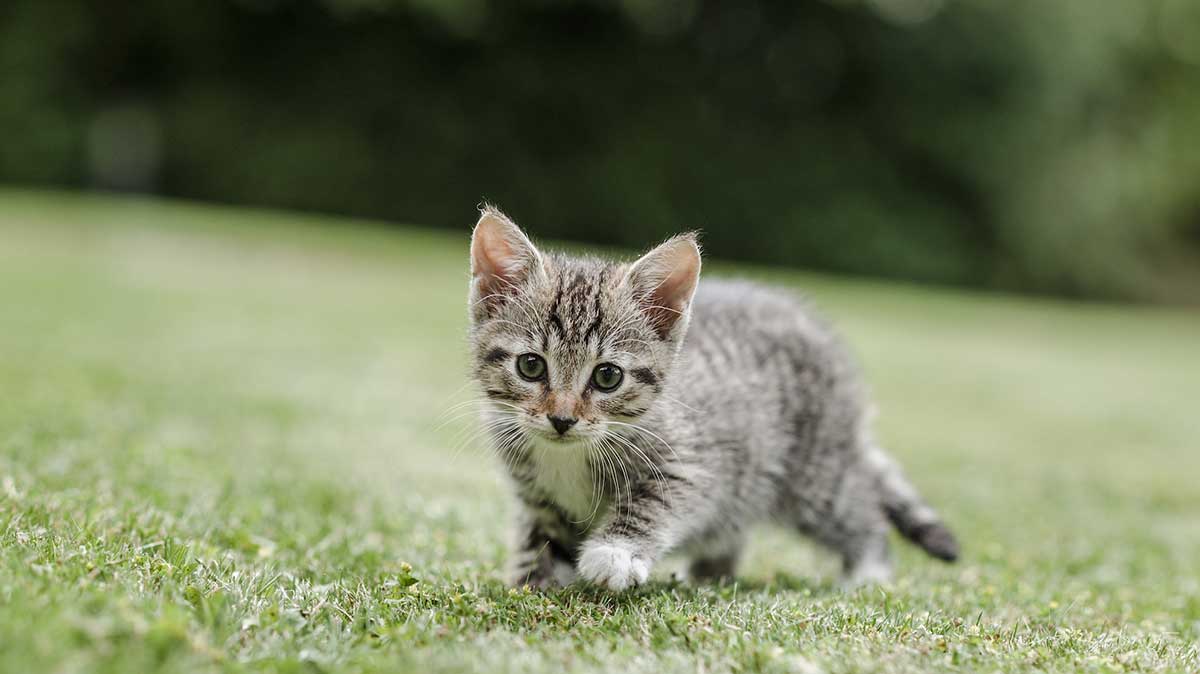
Cystitis in cats
Cystitis in cats top facts
- Feline idiopathic cystitis in cats (FIC) is inflammation of the bladder with an unknown medical cause
- Cystitis in cats is very common and easily treated with anti-inflammatory medication, but can recur
- Stress is thought to be the most significant cause of cystitis in cats, so there is lots owners can do to help
- But owners of male cats must look out for warning signs of a blocked bladder which is a serious, life-threatening condition, which can have the same symptoms of cystitis in cats
What is feline cystitis (FIC)?
When cats have cystitis it means that their bladders are inflamed. Feline idiopathic cystitis (FIC) describes cystitis which has an unexplained medical cause. It is a really common condition and is not normally a serious health concern, but can be very uncomfortable for your cat.
FIC is more common in younger felines and episodes tend to reduce with age. FIC is different from a bladder infection, bladder stones or more serious urinary tract conditions, but can often present the same symptoms.
What causes feline idiopathic cystitis in cats?
Stress is thought to be the most significant cause of FIC in cats. This is because anxiety has been proven to cause a special layer of the bladder which protects it against the harsh chemicals in urine to become patchy. When the tissue of the bladder is exposed to urine, inflammation can occur.
More on stress in cats.
What are the symptoms of cystitis in cats?
- Straining to urinate
- Bloody urine
- Weeing in unusual places
- Licking the urinary opening
How is feline idiopathic cystitis diagnosed in cats?
There is no reliable, concrete test for FIC in cats. If the cat is suffering from urinary problems and all other possibilities, such as infection, blockage or bladder stones have been ruled out, a vet will normally diagnose a cat with FIC.
How is feline idiopathic cystitis in cats treated?
FIC is normally treated with a course of anti-inflammatory medication. This often worries cat owners because, in some cases, where they are dehydrated or have low blood pressure, these medications can cause kidney problems. However in the vast majority of cases they are very safe.
Will my cat get feline idiopathic cystitis again?
Most cats will normally have another episode, but there are steps you can take to limit this possibility. Stress reduction is the best way to prevent repeat problems.
How can I reduce my cat’s anxiety or stress?
Owners know their cat best and what might cause them to be worried, but there are a number of general things that you can do to reduce stress in their environment. They include:
Hiding places
Having lots of hiding places is a really good way of making cats feel safer, so an owner might have boxes or covered spaces for their cat to hide away in each room.
Pheromone therapy
Pheromone therapy like a Feliway diffuser releases an odourless substance which makes cats feel safer and less stressed. It doesn’t work for all cats but is very safe to use.
Location of litter tray and bowls
Make sure that your cat’s litter tray, feeding bowl and water source are out of the line of site of other cats, even cats that are outside. Some cats will get very stressed by having to eat in front of a window or patio door where other cats can watch intimidatingly through the window.
Multiple water bowls
Anything that makes your cat pee regularly is likely to help. Having a choice of water bowls, maybe a water fountain or even adding something to their water to make it tasty and encourage them to drink more is useful. For example, owners can make up some chicken or fish stock and freeze it into ice cubes and pop some in their water each day. Of course, not all cats will like this – so it’s important that they have the choice of another water station as well.
Special diet or supplements
A special diet recommended by your vet can have a big impact but there are also some supplements which owners can try. One common one would be Cystease which can cost as little as £7 for a month’s supply.
Is my cat at risk of a urinary blockage?
Male cats suffering from feline idiopathic cystitis, or any type of cystitis, are at risk of developing a urinary blockage, which is a serious medical emergency. It is therefore crucial that you are certain that your cat is able to urinate. If he isn’t able to, or if you are unsure, you should take your cat to the vet immediately. A bladder blockage can cause dangerous toxins to build up in the system which can kill a cat if left untreated, so any delay can be fatal.
Other symptoms to look out for include:
- vomiting
- nausea
- appetite loss.
Male cats can also suffer a urinary blockage without having cystitis and the signs are the same.
How is a urinary blockage treated?
The blockage will need to be removed as quickly as possible. Your vet will usually do this by using a urinary catheter and, if needed, some special fluid to flush out the bladder. In most cases, a blockage is removed relatively easily.
Afterwards, the urinary catheter can stay in place for up to a couple of days and a bag is sometimes attached to it to monitor urine flow. Once a cat has been discharged, you will need to closely monitor them for any signs of the blockage coming back. If blockages do return, surgery may need to be considered.



